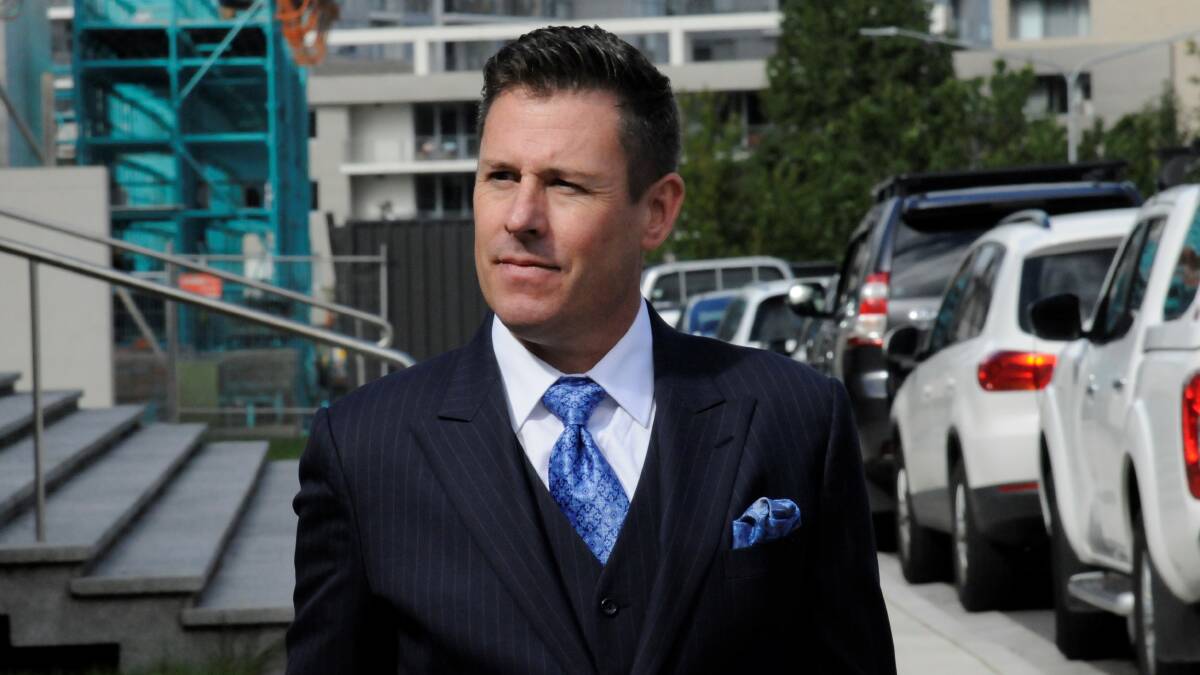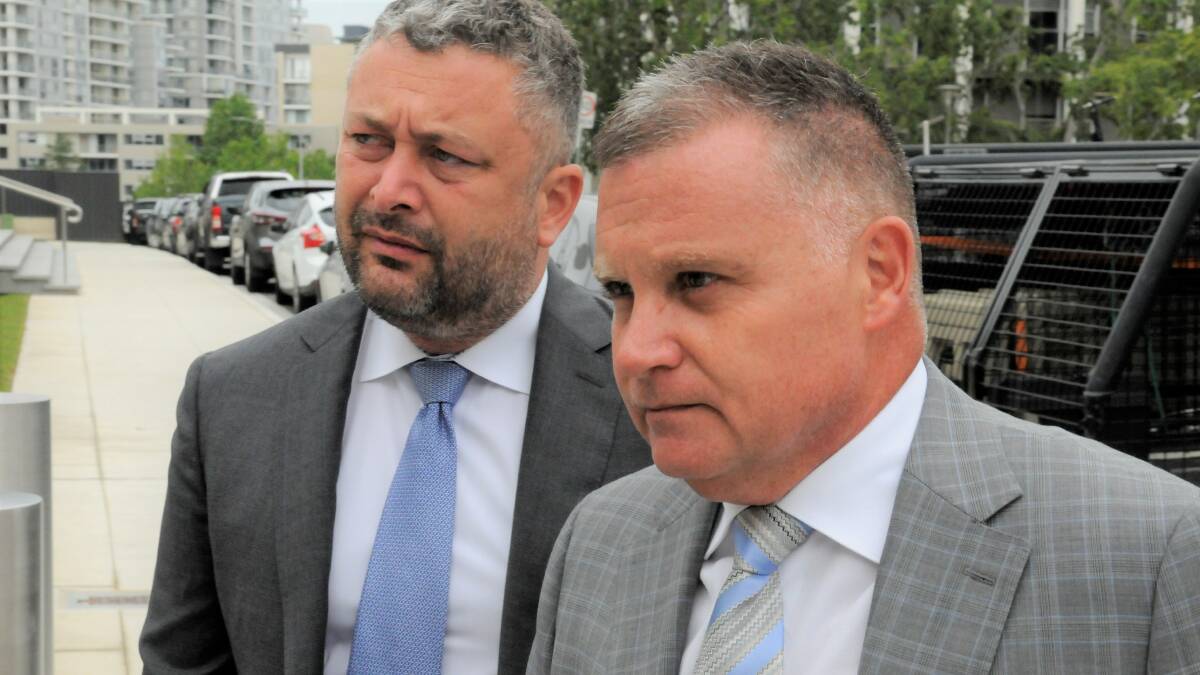
A prominent Canberra solicitor has attacked the validity of the secretive police probe that allegedly proves he conspired to launder money, claiming one of Australia's top cops should not have authorised the undercover sting.
Ben Aulich's barrister, David Campbell SC, says there is "a very serious argument" that any evidence obtained during the operation ought to be deemed inadmissible.
He made that comment in the ACT Magistrates Court on Monday, when it was revealed two other people, whose identities have not been disclosed, were named alongside Mr Aulich as "targets" of what was classified as a "major controlled operation".
Major controlled operations allow undercover police to take part in certain conduct, which would otherwise be considered illegal or unlawful, for the purpose of obtaining evidence.
The court heard Australian Federal Police Deputy Commissioner Ian McCartney had authorised the operation against Mr Aulich after assessing an application that said the lawyer was suspected of dealing with more than $100,000 in proceeds of crime.
Mr Aulich was instead charged, following an investigation that ran for most of 2020, with conspiracy to launder money and recruiting another person to engage in criminal activity.

He is accused of plotting with his alleged recruit, accountant Michael Anthony Papandrea, who has also been charged with the conspiracy offence, and an undercover police officer.
Both accused, who have pleaded not guilty, faced court on Monday for the start of a two-day preliminary hearing.
The first half of the hearing was devoted to arguments about a subpoena Mr Aulich's legal team has served on the ACT's chief police officer, AFP Deputy Commissioner Neil Gaughan.
The subpoena seeks that police hand over the application investigators made for authorisation to conduct the major controlled operation.
Mr Campbell said Mr Aulich's lawyers should be given it because, based on what they had read in a brief of evidence, there was "nothing [police] could have had" at the time of the application that would have justified the operation being approved.
He said there was "a very real question" about whether the authority to conduct the operation had been invalid and, therefore, whether any evidence obtained under that authority would be admissible in court.
MORE COURT AND CRIME NEWS:
- Former soccer president allegedly defrauded club struggling to pay debts
- 'Dumb': Man speeding to police station ends up in bike path pursuit
- Former public servant loses anonymity, jailed for child sex crimes
- Anti-vax leader bailed after rifle, 124 rounds allegedly found in truck
But Deputy Commissioner Gaughan's barrister, Andrew Berger QC, argued the court should find there were three things standing in the way of Mr Aulich receiving the material.
The most significant of these, he said, was that the 49-year-old had "no legitimate forensic purpose".
Mr Berger described the attempt to obtain the application as "a classic fishing expedition".
He handed a confidential affidavit to magistrate Michael Crompton as he argued one of his other points, saying its contents revealed "an extremely strong public interest" in preventing disclosure of the material sought.
Mr Crompton, a NSW magistrate who has been brought to the ACT to hear the matter because of Mr Aulich's status in the territory's legal community, reserved his decision on the subpoena.
The hearing is set to continue on Tuesday with arguments about whether the case can be finalised in the Magistrates Court, or whether it will ultimately need to be committed to the ACT Supreme Court for trial.
Mark Tedeschi QC, external counsel for the ACT Director of Public Prosecutions, told the court on Monday that he would be pressing for the case to go to the superior court.
Mr Aulich and Mr Papandrea are already set to contest any committal, with a hearing about that listed for March 25.







